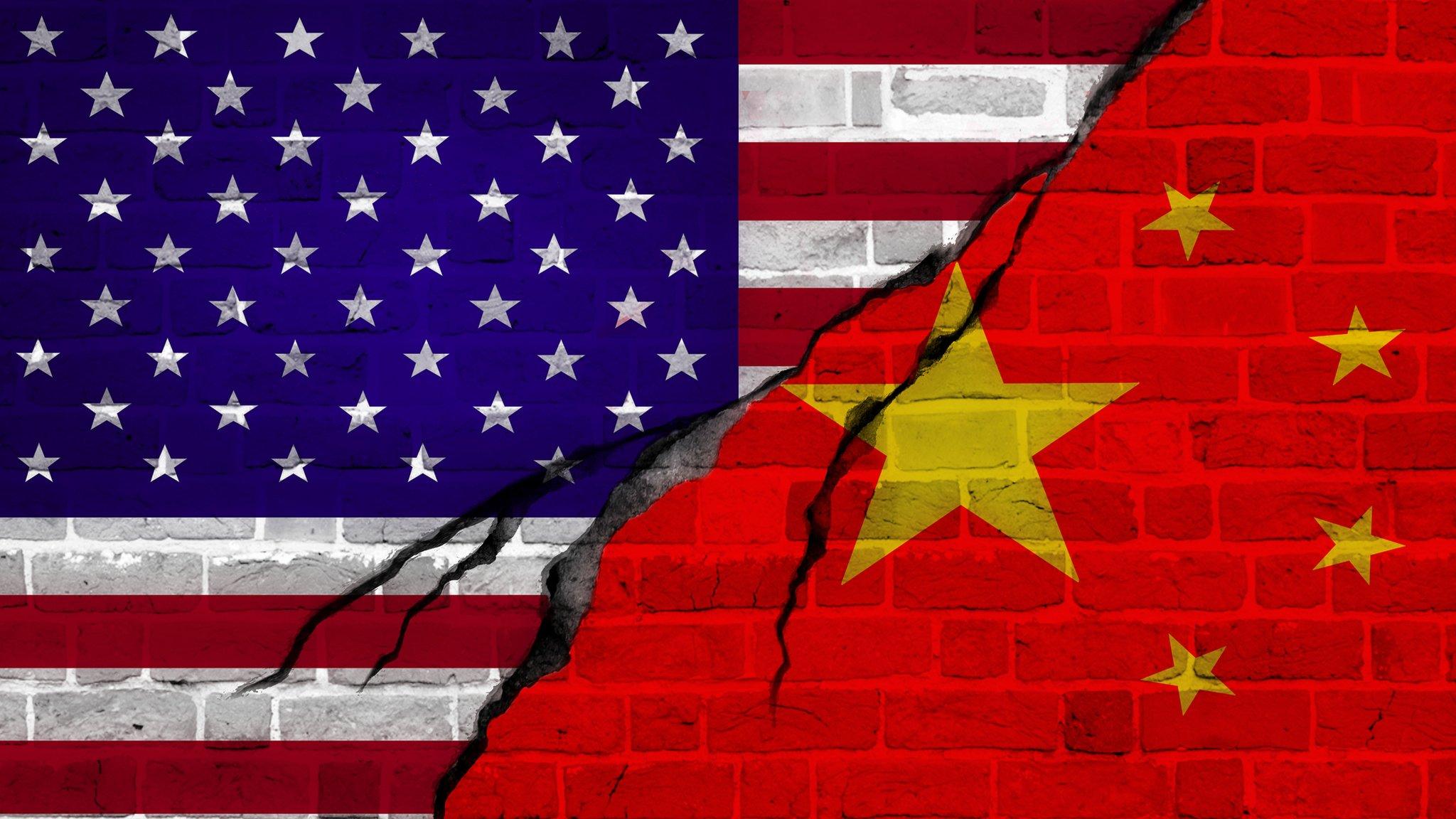G7 summit: War of words erupts between US and key allies
- Published
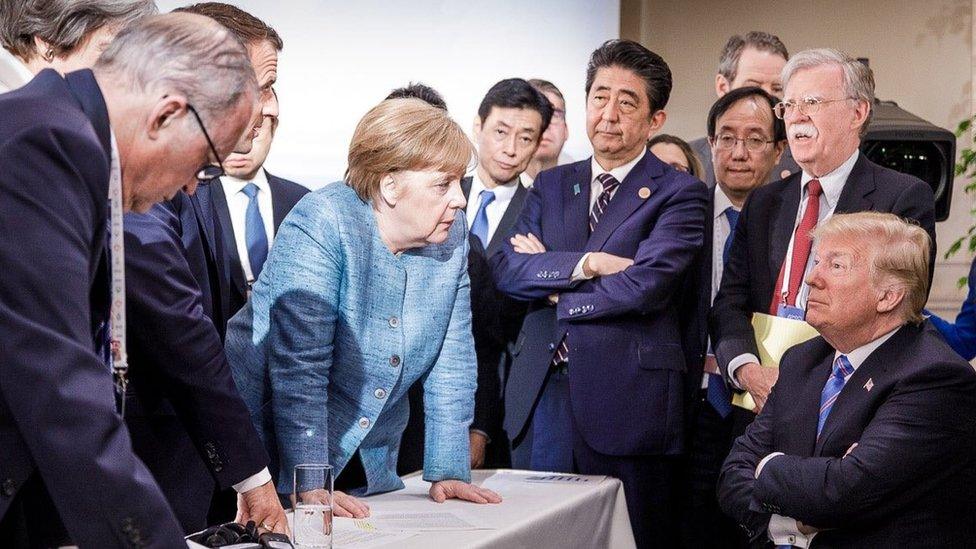
The final communique had been intended as a face-saving agreement after a bad-tempered summit
A war of words has erupted between the US and its G7 allies, hours after the group had put on an apparent show of unity at the end of a tense summit.
US President Donald Trump has continued his personal attacks against Canadian Prime Minister Justin Trudeau, tweeting that he "acts hurt when called out".
Germany's Angela Merkel said Mr Trump's decision to reject a joint communique was "sobering" and "depressing".
That statement had sought to overcome deep disagreements, notably over trade.
In recent weeks, trading partners of the US have criticised new tariffs on steel and aluminium imports imposed by the Trump administration.

An exquisite clash
By Jon Sopel, BBC North America editor
The politics of the old and the politics of the new clashed exquisitely this weekend.
In Quebec at the G7 (the traditional way of doing things) the sherpas, political advisers and draftsmen toiled through two nights to find a form of words that all sides could sign up to.
I left before the end of the summit to embark on a marathon journey from Canada to Singapore.
When I left Quebec all the talk was there would be no agreement. But lo, by the time I landed in Hong Kong to change flights I read that there was a joint communique. Success. Only to see a tweet from Donald Trump a little later rescinding his signature over something Justin Trudeau had said at his news conference. Unbelievable.
Allow X content?
This article contains content provided by X. We ask for your permission before anything is loaded, as they may be using cookies and other technologies. You may want to read X’s cookie policy, external and privacy policy, external before accepting. To view this content choose ‘accept and continue’.

So how did the latest spat unfold?
In a news conference after the summit, the Canadian leader reasserted his opposition to the US tariffs, and vowed to press ahead with retaliatory moves on 1 July.
"Canadians are polite and reasonable but we will also not be pushed around," he said.
Trudeau: "I don't want to hurt American workers"
Mr Trump responded by tweeting en route to his next summit, in Singapore, that he had instructed US officials "not to endorse the communique as we look at tariffs on automobiles".
He said the move was based on Mr Trudeau's "false statements... and the fact that Canada is charging massive tariffs to our US farmers, workers and companies".
From Singapore itself, he tweeted on Monday morning:
Allow X content?
This article contains content provided by X. We ask for your permission before anything is loaded, as they may be using cookies and other technologies. You may want to read X’s cookie policy, external and privacy policy, external before accepting. To view this content choose ‘accept and continue’.
His top economic adviser, Larry Kudlow, and trade adviser, Peter Navarro, attacked Mr Trudeau earlier on Sunday news shows.
"He really kind of stabbed us in the back," Mr Kudlow said, while Mr Navarro said: "There is a special place in Hell for any leader that engages in bad faith diplomacy with President Donald J Trump and then tries to stab him in the back on the way out the door."
Canada's Foreign Minister Chrystia Freeland responded by saying Mr Trump's argument for imposing tariffs on Canadian steel and aluminium was "absurd and frankly insulting to Canadians".
Mr Trump has cited national security as his reason, telling a news conference on Saturday that "to have a great military you need a great balance sheet".
Canada, she said, is "the closest and strongest ally the United States has had. We can't pose a security threat to the United States and I know that Americans understand that".
Other G7 partners also seemed stunned by Mr Trump's reaction, and pledged to support the communique.
Who left their mark on President Trump at the G7 summit?
French President Emmanuel Macron said international co-operation could not be "dictated by fits of anger and throwaway remarks".
"Let's be serious and worthy of our people," a statement from the French presidency said. "We make commitments and keep to them."
What is in the joint communique?
In the communique, external after the summit in La Malbaie, Quebec province, the group of major industrial nations - Canada, the US, the UK, France, Italy, Japan and Germany - had agreed on the need for "free, fair, and mutually beneficial trade" and the importance of fighting protectionism.
Other agreements reached include:
Russia: A joint demand that Moscow "cease with its destabilising behaviour" and withdraw its support for Syrian President Bashar al-Assad
Iran: A pledge to "permanently" ensure Tehran's nuclear programme remains peaceful
Climate: An agreement to disagree. The US refused to sign a pledge to implement the Paris climate change accord after Mr Trump announced the US would pull out of the agreement
Female education: To provide $2.9bn (£2.2bn; €2.5bn) to fund education for the world's poorest girls and women
Mr Trump's twitter attack on Mr Trudeau came minutes after the communique had been published.
What are the tariffs?
On 1 June, the US imposed a 25% tariff for steel and 10% for aluminium on imports from the European Union (EU), Canada, and Mexico. Mr Trump said the move would protect domestic producers that were vital to US security.
The EU then announced retaliatory tariffs on US goods ranging from Harley-Davidson motorcycles to bourbon. Canada and Mexico are also taking action.
Dairy wars: Why is Trump threatening Canada over milk?
What is the G7?
It is an annual summit bringing together seven major industrialised nations which represent more than 60% of global net worth between them.
Economics tops the agenda, although the meetings now always branch off to cover major global issues.
Russia was suspended from the group - then called the G8 - in 2014 because of its annexation of Crimea from Ukraine.
On Friday, Mr Trump made a surprise call for Moscow to be readmitted but German Chancellor Angela Merkel said other members were against the idea.
- Published10 June 2018
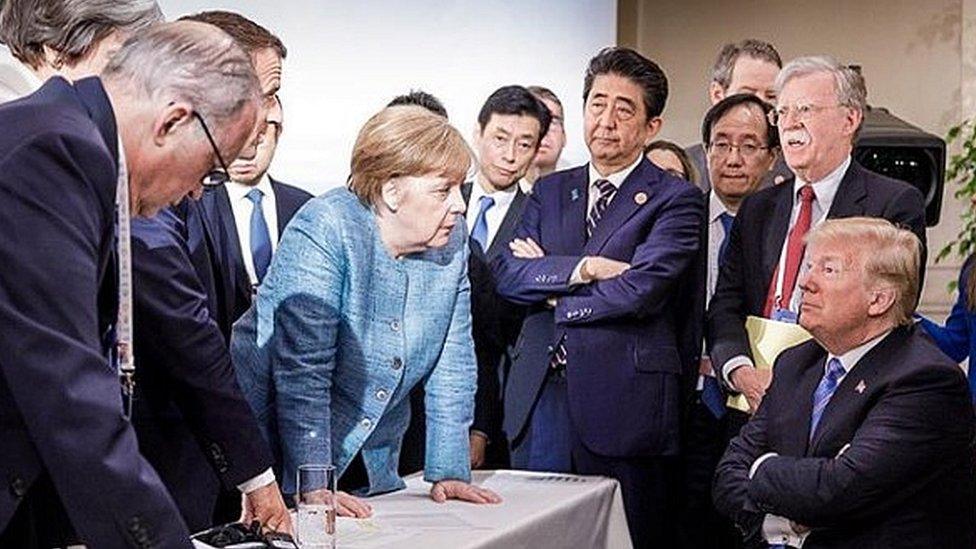
- Published9 June 2018
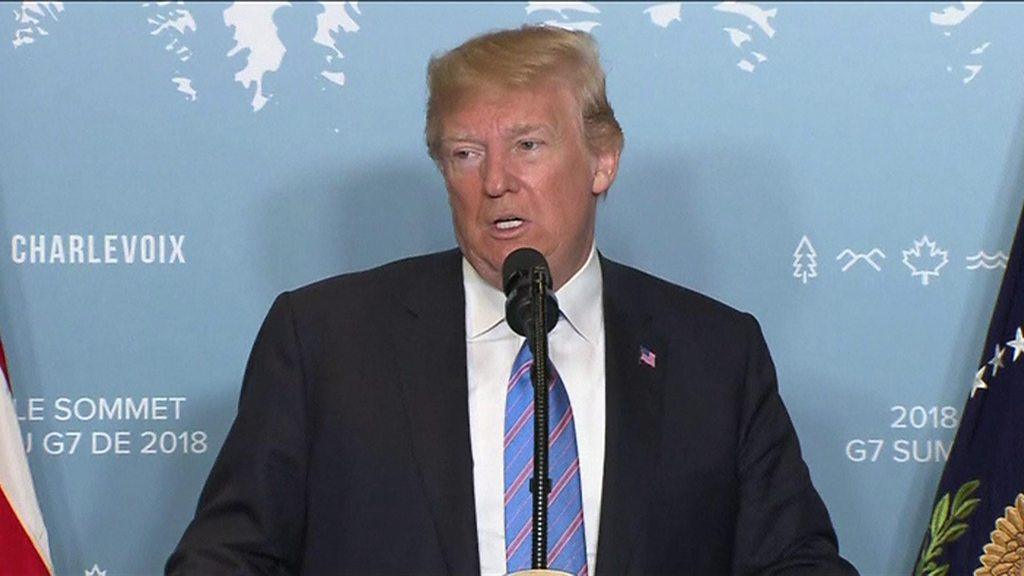
- Published9 June 2018
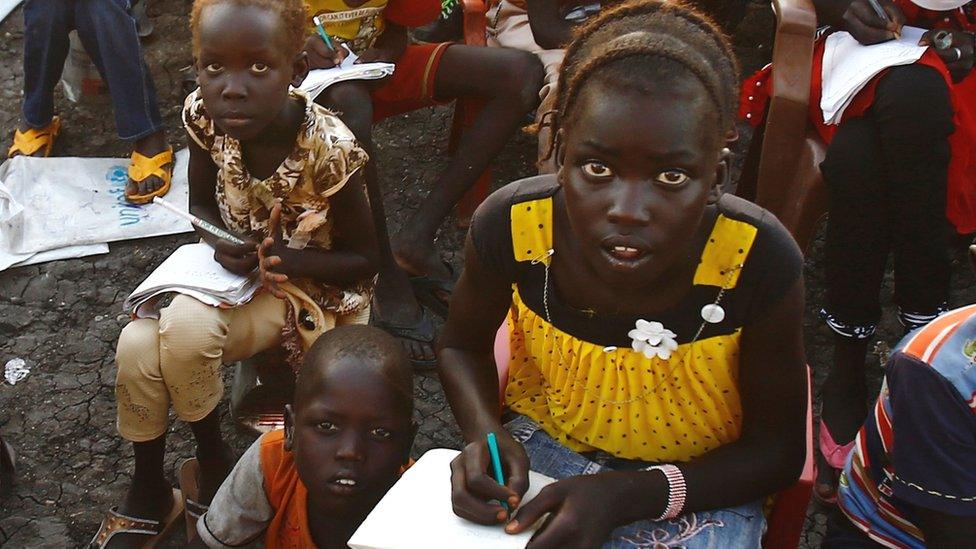
- Published10 June 2018
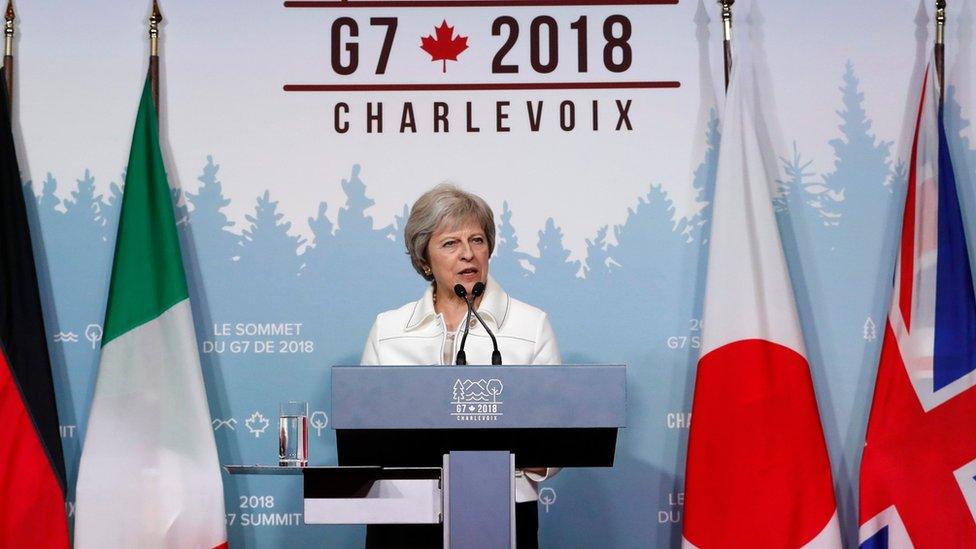
- Published5 June 2018
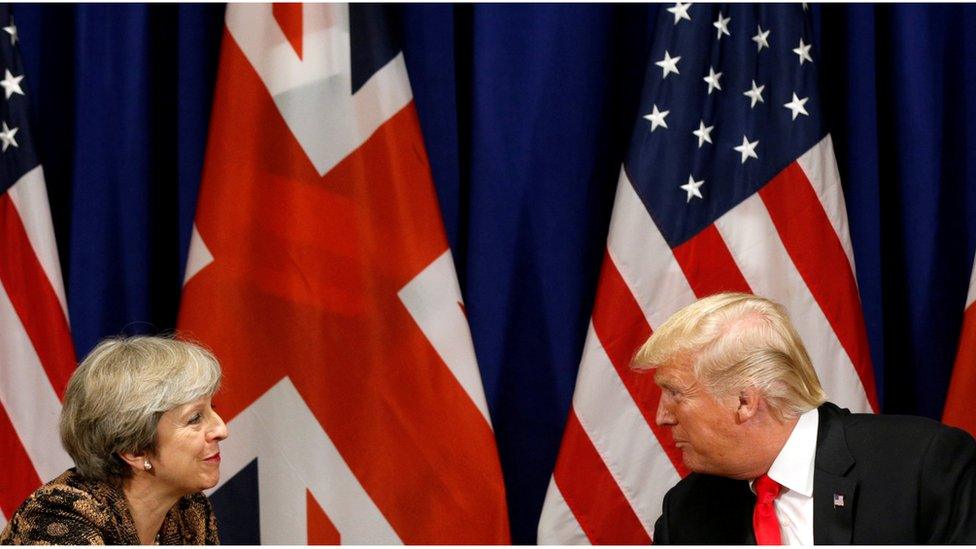
- Published8 June 2018
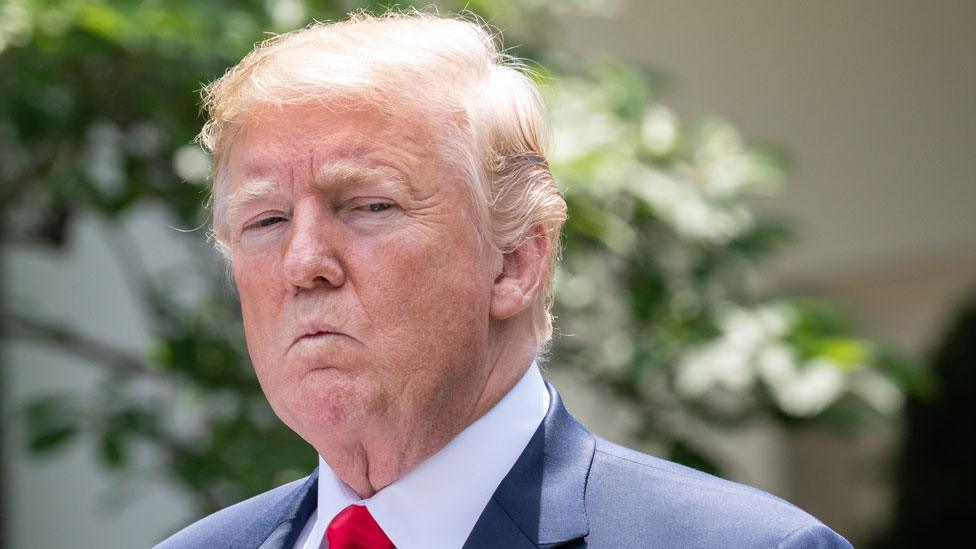
- Published10 May 2019
